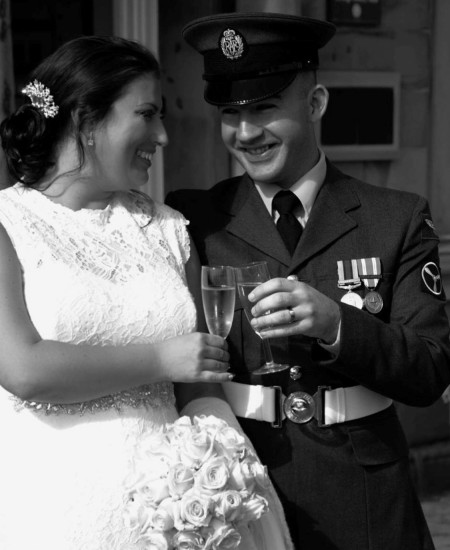Publish date: 23 November 2023
Victoria David – a staff carer's story

Since becoming a carer for my husband Carl, who was medically discharged after an accident at work resulting in a brain injury sustained during his service in the RAF, life has undergone a profound transformation. Overnight, I transitioned into the role of primary carer, juggling the responsibilities of a wife while managing my own evolving identity.
The challenges of adapting our home to accommodate Carl’s needs, coupled with the demands of constant care, have left me with limited time for personal pursuits. Simple activities, like grabbing coffee with friends, now requires meticulous planning, highlighting the impact of the newfound responsibilities of daily life.
Being added to wait lists for help and assistance has an emotional and physical toll. Sometimes they span years as there is such a high demand on services nowadays. The struggle to seek help amid overwhelming demand has been a shared experience among members of the Carers Network. We’ve received great support from organisations such as Help for Heroes, The Royal British Legion, and RAP Benevolent Fund which has been a lifeline. Without their assistance, navigating the challenges of caregiving would have been even more daunting.
Our days now revolve around a constant stream of hospital and home appointments, interactions with rehabilitation teams, and engagement with social workers. These professionals have become an integral park of our lives, necessitating continuous communication, information sharing, and adherence to various schedules and documentation requirements.
While there are many support groups for the individuals we care for, the landscape for caregiver support is notably sparse. The absence of dedicated resources for those in my role underscores the need for broader recognition and assistance for carers.
The Carers Staff Network within our trust has been a great support system, and the introduction of the Trusts Carer’s Passport has been instrumental in maintaining my identity at work. Coupled with flexible working arrangements, it has allowed me to balance my professional commitments while meeting the demanding needs of caregiving. This balance has proven crucial in preventing the compromise of either side of my life.
I aim to attend the monthly drop-in sessions for carers, facilitated through virtual platforms like Teams. It provides a critical lifeline to connect with others facing similar challenges. The sessions offer a sense of togetherness and allow me to find out valuable information which has helped me with being signposted to different organisations. I’ve also been welcomed by the Veterans and Reservists Staff Network due to my affiliation as a veteran’s wife. This has broadened my support network and reinforces the sense that, even during challenges, I am not alone in this journey.
